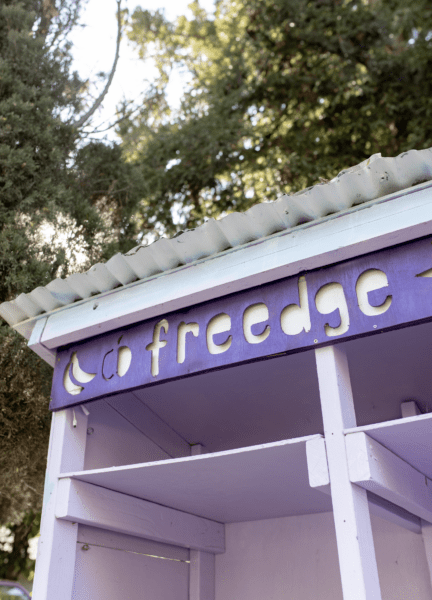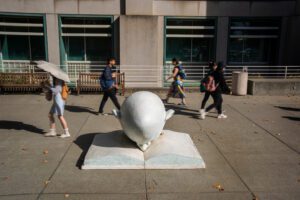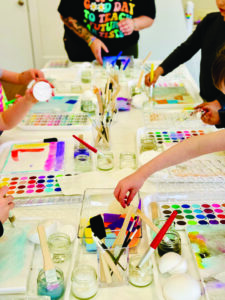By: Emme Dunning, for The Dirt
November is a month of rainy days, fall colors, and perhaps most importantly—food. Thanksgiving marks the end of the month, giving families and friends an opportunity to get together, give thanks, and enjoy the delicious meal the holiday boasts. But this kind of meal planning can be difficult and stressful for families facing food insecurity.
More than 21,500 families in Yolo County rely on monthly food assistance from the Yolo Food Bank to make ends meet. Davis is a town where neighbors take it upon themselves to help each other, and food access is no different.
In 2014, Ernst Oehninger and a group of fellow UC Davis graduate students took on the issue of food insecurity with a simple idea—public refrigerators filled with free food. Or as many call them, freedges.
The idea stemmed from their growing anger about the more than 100-billion pounds of food wasted each year in the United States, when more than 30-million people are still hungry.
“It’s a little crazy, right? We produce more than we need, and at the same time a lot of people don’t have enough to eat,” Oehninger told The Dirt. “There’s so many people that have three jobs and are food insecure. There’s so many students that are food insecure.”
The concept was simple; an outdoor mini fridge where community members could access fresh, free food anytime. The freedge quickly took off, attracting community members from all walks of life, including students, families, and frequently the graduate students that initiated the project.
Today, Davis is home to five official freedges—three in the City and two on the UC Davis campus. Freedges are stocked by and for local community members, and are regularly filled with produce and non-perishables.
Although the freedges help tackle individual hunger, Oehninger said their goal is not to eradicate food insecurity.Instead, the project aims to help community members meet basic day-to-day hunger needs, and fuel themselves to continue the larger fight against the systemic side of the issue.
“People cannot organize if they’re hungry,” Oehninger said.
The freedges also exist to promote community. There is perhaps nothing more unifying than enjoying good food, and the freedges strive to help make this experience accessible for all members of the Davis community.
Though often beautifully painted as a community artwork of their own right, the freedges also serve as a physical symbol and reminder of the food insecurity many face, and spark conversation around this often invisible issue.
The freedges are a community project, and are always in need of volunteers to help stock and maintain existing structures, as well as expand their reach into new areas. If you are interested in learning more about supporting this project, or starting your own freedge, visit https://freedge.org/davis or reach out to contact@freedge.org for more information.
Freedge Locations:
- 2013 Whittier Dr.
- 1221 Eureka Ave.
- Davis Food Co-op
- UCD Memorial Union
- UCD Silo




